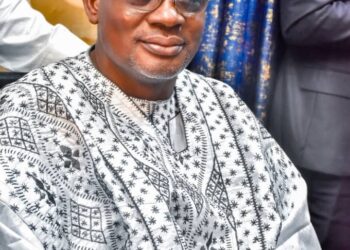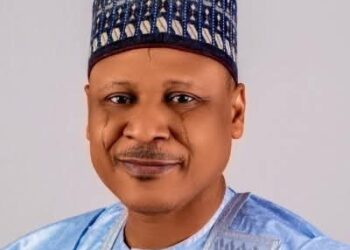Kebbi ready to key into Digital Economy, E-Governance
The Commissioner, Kebbi State Ministry of Digital Economy, Hon. Mohammad Ibrahim-Mohammed assured the readiness of the State Government to key into the Digital Economy and E-Governance.
He stated this at the Ministerial High-Level Workshop on the Draft National Digital Economy and E-Governance Bill held in Birnin Kebbi.
The commissioner said the occasion signifies a pivotal moment in our collective journey toward leveraging technology for sustainable growth and inclusive governance.
“The emergence of the digital economy is not just a trend but a profound transformation of global economic and governance systems.
“In today’s interconnected world, digital technologies are reshaping how we work, communicate, and govern.
“They have opened new frontiers of opportunities, and it is imperative that Nigeria, especially Kebbi State, positions itself strategically to harness these benefits,” he noted.
According to him, the scope of digital economy is vast, encompassing e-commerce, digital finance, virtual education, online health services, and much more.
Ibrahim-Mohammed observed digital economy has become a key driver of innovation, productivity, and economic growth worldwide.
He said: “The digital economy presents enormous potential for economic diversification. It creates jobs, stimulates entrepreneurship, and provides a platform for businesses to scale beyond physical borders.
“In Nigeria, where the youth population is vibrant, this sector can generate millions of productive jobs and help lift communities out of poverty.
“Technology reduces barriers to market access for rural entrepreneurs, connecting them to local and global consumers.
“For Kebbi State, this could mean better integration of our agricultural products into broader markets through e-commerce platforms.”
With digital tools, the commissioner observed that industries could automate processes, reduce costs, and enhance service delivery, adding that the innovation was essential for sectors like healthcare, education, and agriculture, which were critical to Kebbi’s economy.
Ibrahim-Mohammed said E-governance harnesses the application of information and communication technologies in public administration which remained a powerful tool for transforming government operations and improving service delivery.
He added that digital systems allow for the automation of public services, reducing opportunities for corruption and ensuring transparency, noting that by enabling real-time access to information, e-governance fosters trust between the government and its citizens.
“Through digital platforms, citizens can access government services without delays. Imagine a system where farmers in Kebbi can apply for subsidies, access resources, or resolve issues online, saving time and resources.
“E-governance ensures that services reach every citizen, even in the most remote areas. It bridges the gap between urban and rural communities, ensuring equity in governance.
“As we discuss the Draft National Digital Economy and E-Governance Bill today, we must consider its implications for our local context.
“This bill will provide a robust legal and regulatory framework for harnessing the full potential of the digital economy while safeguarding data privacy and cyber security,” Ibrahim-Mohammed added.
He assured that the Kebbi State Government under Dr Nasir Idris was committed to aligning with the national vision in line with the Renewed Hope Agenda of Mr. President, President Bola Ahmed Tinubu.
“As a proactive government of Comrade Dr. Nasir Idris, we have taken initial steps to digitize processes through the Kebbi State website, Kebbi Investment Promotion website, payment portals, e-procurement systems among others.
“We have also encouraged innovation by partnering with the Bank of Industry to establish the Kebbi Innovation and tech Hub.
“In fostering digital literacy, we have carried out several trainings and workshops such as STEM education training for Kids, training of youth and women in digital skills (including basic literacy, software development, graphics design and data science) and for selected MDA staff on managing government service portals.
“However, there is much more to be done. While the opportunities are immense, challenges such as inadequate infrastructure, cybersecurity threats, and digital literacy gaps must be addressed collaboratively.
“This workshop is a critical step in fostering dialogue and partnerships to tackle these issues,” he said
Ibrahim-Mohammed assured that Government of Dr Nasir Idris would continue to work with all stakeholders to expand broadband penetration to rural communities in Kebbi, empower the youth with digital skills through training programmes and partnerships and work with the private sector to drive innovation and investment.
“I urge everyone present; policymakers, technocrats, and private sector leaders to ensure that this bill reflects not only national aspirations but also the unique needs of states like Kebbi. Together, we can build an inclusive digital economy that leaves no one behind,” the commissioner said.








